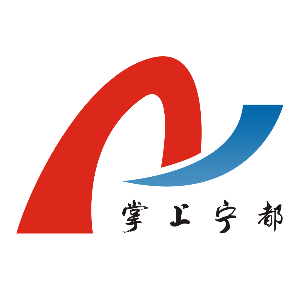Photo taken on April 29, 2020 shows the Great Hall of the People in Beijing, capital of China. [Photo/Xinhua]
Key political meetings highlight China's resolve in prevailing over COVID-19
As global attention turns to Beijing with the start of China's two sessions on Thursday, experts said that the nation's biggest annual political event will indicate the direction of its socioeconomic development amid the COVID-19 pandemic and will inject confidence into the gloomy world economy.
The opening of the annual meetings of the National People's Congress, the nation's top legislature, and the National Committee of the Chinese People's Political Consultative Conference, the nation's top political advisory body, was postponed from the usual date in early March due to the novel coronavirus outbreak.
Convening the two sessions this week shows that China has made major strategic achievements in fighting the contagion and its efforts to coordinate epidemic control and socioeconomic development have taken effect, said Xu Xiujun, a leading researcher at the Chinese Academy of Social Sciences' Institute of World Economics and Politics.
It also sends a message to the international community that China has strong resolve and confidence in prevailing over the epidemic and reviving its economy, Xu told China Daily.
The two sessions will see around 3,000 legislators gather in Beijing to discuss major laws and regulations as well as discuss and approve several key documents, including the Government Work Report and the national budget, along with more than 2,000 political advisers from the CPPCC.
China uses the annual political event to reveal its growth target and key economic agendas, which set domestic and international expectations. It usually also sets out major policy shifts and adjustments.
This year's landmark political event is unusual because it takes place while the pandemic is raging globally. China also faces the risk of the epidemic resurging as it embarks on economic recovery.
The political event is also important as the country aims to secure the goals of building a moderately prosperous society in all respects and shaking off absolute poverty by the end of this year.
Public health security
In addition to setting the work priorities, targets and tasks for this year's national economic and social development, the two sessions could also focus on how China improves its public health security and responds to the complex and changing international situation.
China might use the two sessions to unveil more policies and measures related to international cooperation on combating the pandemic, boost global confidence in winning the battle against the virus and respond to the stigmatization of China by some countries, experts said.
Xu said that the unexpected public health crisis has posed challenges for China in achieving its strategic goals, but the major challenges come more from the changing external environment.
Domestically, China has maintained good momentum in epidemic control and economic recovery, he said, while internationally the turning point of the pandemic has yet to be seen, and the impact of the pandemic on other major economies, such as the United States and Europe, has yet to be fully understood.
Xu said that given the current situation, he could not rule out the possibility that some countries would take a more confrontational stance against China, adding that this could increase the risks for China's development.
Despite these challenges, Xu suggested that China should continue to prioritize high-quality development by coordinating its efforts in stabilizing growth, promoting reforms, readjusting its economic structure, improving people's livelihoods, preventing risks and maintaining stability.
China's economy shrank by 6.8 percent year-on-year in the first quarter as the virus outbreak dealt a huge blow to economic activity. While the epidemic has been basically brought under control domestically, economic activities remain on the road to recovery.
Value-added industrial output increased 3.9 percent year-on-year in April, rebounding from the 1.1-percent drop in March and the 13.5-percent slump in the first two months of the year, according to National Bureau of Statistics data released on Friday. However, the statistics authority warned that the recovery still faces uncertainties and challenges from the global spread of the novel coronavirus.
Zhou Fangyin, a senior researcher at the Guangdong Institute for International Strategies, said in an interview with China Daily that convening the two sessions is a signal that business is largely back to normal in the world's second-largest economy.
Zhou said that as major uncertainties still remain amid the global pandemic, China's two sessions will provide a degree of certainty for the world economy and help the international community to overcome the panic that the pandemic has brought about.
Against the backdrop of a trend against globalization during the pandemic, China will continue to uphold all-round opening-up and strengthen international cooperation in trade, investment and financing, he added.
During the two sessions, Zhou said China could also underscore the need to improve its manufacturing capability and strengthen its industrial chains, step up the development of the digital economy, and advance the construction of digital infrastructure, including 5G, the internet of things and artificial intelligence.
By doing so, China will become more competitive in some areas of manufacturing while upgrading and transforming its economic structure, Zhou said.
According to the IMF's World Economic Outlook released in April, the global economy will contract by 3 percent this year. Amid the unprecedented pandemic, experts said it is difficult to predict the ultimate growth rate of China's economy this year.
Justin Yifu Lin, honorary dean of the National School of Development at Peking University, said in an article that China has the ability to maintain a reasonable growth rate this year. The article was published on the website of Peking University's Institute of South-South Cooperation and Development. Lin is also the dean of the institute.
The Chinese government should take advantage of its favorable fiscal and monetary policy space to stabilize the financial system, increase credit to help enterprises, invest in new infrastructure and provide necessary support for families affected by the pandemic, Lin said, adding that these measures will help to expand domestic demand, maintain social stability and overcome the obstacles facing future economic growth.
"Like it has since 2008, China will drive the world's economic growth and recovery as it emerges from the coronavirus crisis," he said.
Find more audio news on the China Daily app.
记者:曹德胜
播报:Corrie Knight
【背景阅读】
2020,世界期待来自两会的“中国答案”
新华社北京5月19日电 中国两会即将开幕,世界瞩目。
迈入2020年,突如其来的新冠肺炎疫情肆虐全球,人类正经历二战结束以来最严重的全球公共卫生突发事件。与病毒较量,成为世界各国在这一特殊年份面临的共同挑战。
对中国而言,2020年是决胜全面建成小康社会、决战脱贫攻坚之年,也是“十三五”规划收官之年。如今,中国疫情防控形势持续向好,经济社会生活逐步恢复正常。疫情之下,中国将如何助推全球战“疫”合作?特殊之年,中国将擘画怎样的经济社会发展蓝图?考验面前,中国将如何确保完成决战决胜脱贫攻坚目标任务,全面建成小康社会?
世界期待来自两会的“中国答案”。
战“疫”,为全球抗疫传递信心
新冠肺炎疫情发生后,经过艰苦卓绝的努力,中国疫情防控阻击战取得重大战略成果,统筹推进疫情防控和经济社会发展工作取得积极成效。
疫情无国界。中国与各国患难与共、守望相助,尽己所能向国际社会伸出援手。一批批医疗物资运往世界各地,一场场“云会议”分享中国抗疫经验,一支支中国医疗专家队奔赴海外……中国政府和人民以实际行动践行人类命运共同体理念,彰显负责任的大国担当。
“中国作为人类命运共同体理念的提出者和倡导者,在全球面临严峻疫情的艰难时刻,毫不犹豫地投入抗疫国际合作,用实际行动为全球注入信心和力量。”巴勒斯坦政府发言人易卜拉欣·穆勒哈姆说。
中国还将采取哪些措施巩固抗疫成果、促进全球抗疫合作、推动完善全球公共卫生治理,备受各方期待。
韩国檀国大学政治外交系教授金珍镐说,今年两会召开时间“特殊”,是在中国抗击新冠肺炎疫情取得重大阶段性成果之时。“疫情之后,中国将如何加强公共卫生安全体系构建、如何进一步恢复和提振经济、如何为今后防范类似危机作出部署,相信从这次两会也能找到答案。”
发展,为稳定世界经济注入力量
新冠肺炎疫情暴发以来,世界经济的列车因疫情陷入泥沼。联合国最新经济展望报告显示,2020年全球经济预计萎缩3.2%。
作为全球第二大经济体,中国的经济表现关乎世界经济前景。全球市场都在关注,中国在抗疫取得重大战略成果之后,如何进一步推动复工复产、提振经济。两会,为世界提供了近距离观察的窗口。
法国巴黎第八大学教授皮埃尔·皮卡尔说,两会的召开是中国经济走向复苏的标志,“世界比以往任何时候都更加关注今年召开的中国两会和中国经济表现”。
“中国两会的决策将表明中国未来经济发展方向,进而影响世界经济格局,是世界经济在遭遇疫情冲击后能以多快速度实现复苏的关键。”英国杜伦大学金融学首席教授郭杰说。
“德国借鉴了中国应对新冠肺炎疫情的措施,现在将关注中国恢复经济的措施。”德国联邦经济发展和对外贸易协会主席米夏埃尔·舒曼说。“希望两会能够释放中国促进和发展对外合作的信号。”
承诺,为全面建成小康社会坚定决心
新冠肺炎疫情突如其来,正值中国决胜全面小康、决战脱贫攻坚的关键时刻。
“生命重于泰山”“要把人民群众生命安全和身体健康放在第一位”。面对汹涌疫情,全力战“疫”成为重中之重。“确保完成决战决胜脱贫攻坚目标任务,全面建成小康社会。”凝聚信心和力量,奋力实现发展目标,也是庄严的中国承诺。
海外人士关注两会将就决胜全面建成小康社会、决战脱贫攻坚作出哪些新部署,认为中国有决心、有能力如期完成重点目标任务。
“中国的脱贫攻坚、全面建成小康社会的目标并未受到疫情影响。如果从未来回望,这次疫情将只是中国强劲发展历程的一个插曲。”德国柏林普鲁士协会名誉主席福尔克尔·恰普克说。
“新冠肺炎疫情不会对中国实现主要战略目标造成影响。中国将按既定计划建设小康社会,消除贫困,将经济转入创新驱动发展的轨道。”这是俄罗斯科学院远东研究所代理所长阿列克谢·马斯洛夫基作出的判断。
面对错综复杂的国际形势,世界期待秉持人类命运共同体理念的中国,为世界和平与发展不断作出新贡献。
肯尼亚国际问题专家爱德赫雷·卡文斯说,中国的减贫成就“是人类历史上从未出现过的壮举”“当中国成功建成小康社会时,世界也将朝着实现联合国千年发展目标前进”。(来源:新华社)









